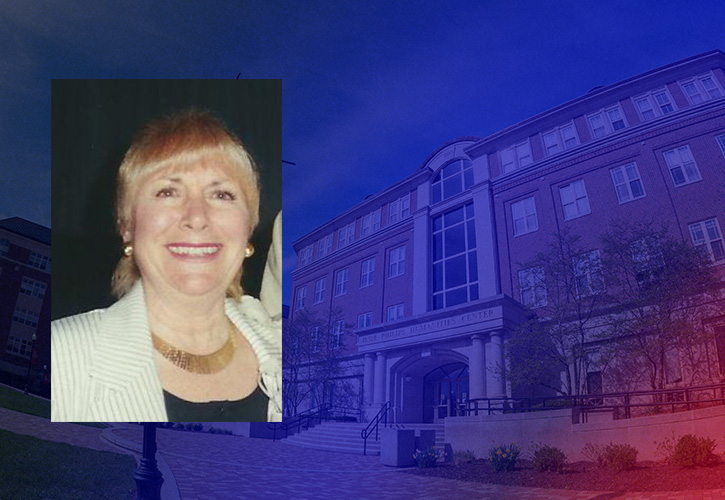College of Arts and Sciences Newsroom

In Memoriam: María Jesús Castelló-Lamas
María Jesús Castelló-Lamas, a professor of Spanish with 30 years of service to the University of Dayton, died Oct. 25. She was 93.
“Marisús,” as she preferred to be called, was a trailblazer who emigrated from Spain to study at Tulane University, where she received her master’s degree in 1960. She joined the UD Department of Languages in 1964.
She was very independent, knowledgeable, and assertive. She was a beloved professor at UD until her retirement in 1994. She taught Spanish language, literature and culture courses. Marisús was the founder of the Eta Tau Chapter of the Spanish Honor Society Sigma Delta Pi for students of Spanish, which is still active in the Department of Global Languages and Cultures.
In 1972, Marisús was part of a team of eight professors who participated in the first UD study abroad program for students. Entitled “Interdepartmental Summer Study Abroad Program,” the University established three summer study centers in Europe: London; Nafplion, Greece; and Madrid (Spain), where Marisús taught Spanish courses.
Marisús had a deep appreciation for life, colleagues and friends. Professor Emerita Maureen O’Meara recalled her affectionately: “After so many years, I have very fond memories of Marisús. I still remember her warmth in welcoming me when I arrived as a ‘junior’ faculty member 36 years ago. I cherish her memory as both a generous friend and a colleague devoted to her department, her colleagues and her students.”
Professor Lucette Fogel and Marisús continued getting together after their retirements.
“I always enjoyed working with Marisús,” Fogel said. “She was an interesting and fun person. We managed to get together for lunch several times after we both left UD.”
Professor Emeritus Robert Conard remembered her unique personality.
“In all the years we were together at UD, Marisús and I seldom met outside of University functions,” Conard said. “However, we always got on well together and her presence always produced excitement because she was an irrepressible, joyful spirit that made one laugh with her honest and direct comments, never malicious, but always surprising and entertaining. Many of our departmental meetings were memorable because of one or more of her unexpected expressions of approval of or disagreement with the prevailing discussion. Without having much contact with her in the last few years, my memory of her remains fresh and has not faded in her absence.”
For Professor Francisco Peñas-Bermejo, Marisús always had a special place in his heart.
“Since the very first moment I came to UD in 1991, Marisús and I had a strong connection that grew stronger over the years,” Peñas-Bermejo said. “Being both originally from Spain, we had innumerable stories about the Spanish monarchy, Galicia and Castile, and how Spain and Europe were changing. Marisús met my parents and had an ongoing friendship with my mother for years, calling each other every week. I became Marisús ‘adopted son’ and cared for her until the last moment of her life. She will always be an irreplaceable ray of light in my soul.”
Marisús spoke three languages fluently: Galician, Spanish, and English. She traveled to many places in Europe, and loved singing Americana, musical and Spanish songs. Classical and Celtic music were her passion.
Following her wishes, her ashes will be scattered in the Atlantic Ocean, so they can make their way to her native Galicia to embrace the United States and Spain, the two countries she loved so much.
Marisús was born April 18, 1929, in El Ferrol (A Coruña), Spain. She was preceded in death by her sisters Carmiña and Amalia and her brother José. She is survived by her “adopted son” Francisco, her “adopted grandchildren” Delos and Dasha, her niece Amalia, her brother-in-law Vicente and numerous nieces, nephews and other family.
